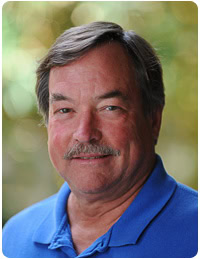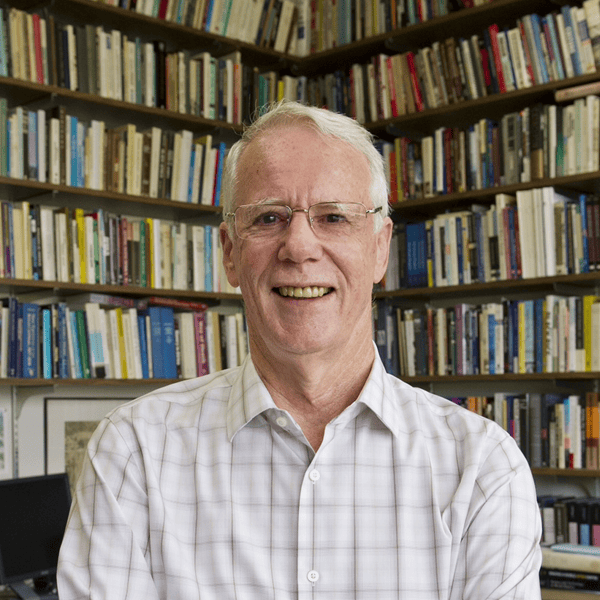
Jerry Bentley. Photo courtesy University of Hawai’i history department
With the passing of Jerry H. Bentley on July 15, 2012, the field of world history lost one of its central figures and the historical profession lost a scholar who did much to broaden its scope. Jerry Bentley, who served at the University of Hawai’i throughout his academic career, died at his home in Honolulu after a battle with pancreatic cancer. His reputation among world historians arose particularly through the Journal of World History, the journal he co-founded and edited for over twenty years. The strength of his editorial work, along with his global scholarship, brought him to influence within the World History Association and the American Historical Association. He was author of major interpretive works in world history, co-author of the most successful world-history textbook, and a leader in the institutional development of world history.
Bentley was born in 1949 in Alabama, and spent much of his youth in Chattanooga, Tennessee. He attended the University of Tennessee, earning a bachelor’s degree in 1971. He pursued doctoral studies in Renaissance history at the University of Minnesota, completing this work just as the bottom fell out of the job market, but nevertheless gained a tenure-track position at the University of Hawai’i. While at Hawai’i he published two books in Renaissance history—Humanists and Holy Writ: New Testament Scholarship in the Renaissance (1983) and Politics and Culture in Renaissance Naples (1987).
Meanwhile, interest had begun to grow in world history – the World History Association had formed in 1982, and Bentley was an early member. By 1986 the Department of History at Hawai’i had taken the initiative of creating a PhD examination field in world history. By 1988 Bentley, various of his UH colleagues, and the University of Hawai’i Press had agreed to found the Journal of World History, with Bentley as editor.
The journal had a good start, winning the American Library Association prize for the best new journal in 1990. Bentley had remarkable strengths as a journal editor: dependably rapid and decisive in communication, he kept the journal on schedule, the authors on track, and steadily extended the scope of coverage and discourse. In 1993 he published a broad interpretation of world history, Old World Encounters, and in the following year he published an AHR article expanding that approach to periodization of world history. Then followed an influential AHA pamphlet, Shapes of World History in Twentieth-Century Scholarship (1996). Thereafter, Bentley and his colleague Herbert Ziegler co-authored a college-level textbook in world history, Traditions and Encounters. It first appeared with McGraw-Hill in 2000 and gained a position as the most popular world history text.
In the new century, Bentley took on one institutional and intellectual challenge after another. He served on the College Board’s History Academic Advisory Committee, was a regular at the AP World History readings, and co-chaired the commission for redesigning the AP World History course. He was influential in bringing the WHA headquarters to the University of Hawai’i. With Renate Bridenthal, he co-directed the AHA’s 2003 Seascapes conference and co-edited the conference volume. From 2004 he began annual visits to lecture in world history at Capital Normal University in Beijing, culminating in the WHA 2011 conference at CNU. In one more exhibit of editorial excellence, he edited the Oxford Handbook of World History (2011), in which he gathered colleagues to produce sophisticated overviews on major elements of this maturing field of study.
Bentley was an effective and forceful defender of world history and of his viewpoint in debates within the field. He was a warm and most dependable associate on whom many came to rely as a pillar of the field as it grew along with his work. His was a lifetime of energetic devotion to expanding the global frontiers of historical studies.
